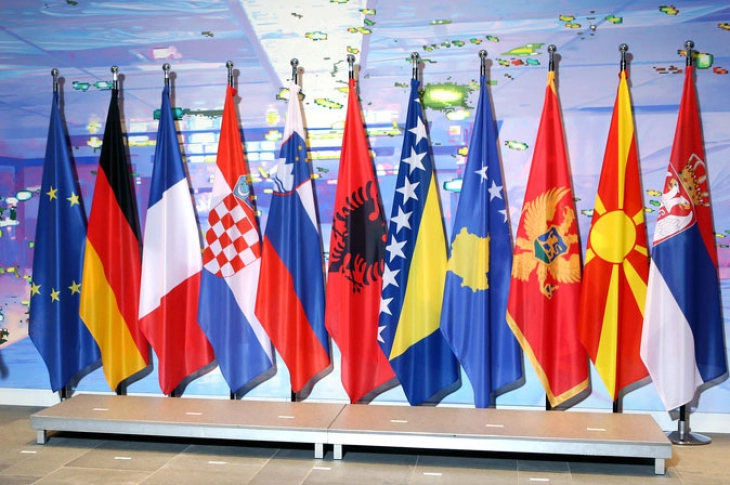Member-states cannot agree on declaration of EU-Western Balkans Summit: diplomats

Skopje, 29 September 2021 (MIA) – After yesterday’s text released by Reuters claiming that several member-states seek to halt the EU enlargement process, several diplomats have told MIA that the text “is more pessimistic than reality” amid tensions around the conclusions in the Declaration of the EU-Western Balkans Summit set to take place in Slovenia next week, MIA reports from Brussels.
The Reuters article refers to the September 15 discussion among EU ambassadors, diplomats told MIA. As is the case before any EU-Western Balkans summit, ambassadors align the declaration’s text that would be handed over to the leaders.
The diplomats say these summits have not focused on enlargement in recent years (under the Bulgarian and Croatian EU Presidency), but the Union’s support to the region’s European perspective has been reaffirmed on every occasion.
While the initial version of the Declaration reads, “The EU reaffirms its unequivocal support to the European perspective of the Western Balkans, which is in our mutual strategic interest and remains our shared strategic choice”, several member-states that champion enlargement have urged for more explicit support to the process.
According to diplomats attending the meetings, this request angered the traditionally skeptical France, Netherlands and Denmark, who asked in return that the declaration lists the strict enlargement criteria, thus sending a message that enlargement “is not a done deal.”
The topic will be discussed at next week’s final ambassadorial meeting ahead of the EU-Western Balkans summit.
It remains unclear why diplomats decided to brief Reuters on the same day European Commission President Ursula von der Leyen started her Balkan tour. However, not everyone in Brussels is concerned by the text.
The Slovenian Presidency is set to decide if the declaration has the initial wording regarding the support for the region’s prospects or produce another creative solution.
Diplomats recall that enlargement is a highly-polarized topic within the EU – Denmark, France and the Netherlands on one side and countries of the Eastern bloc on the other, with Germany seemingly somewhere in between.







